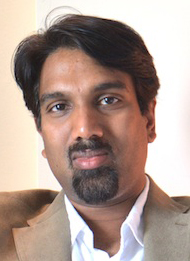 |
Professor Kumar Selvarajoo,
|
Abstract:
The recent surge in systems biology efforts is revealing many complexities that cannot be understood using traditional causal relationship approaches. For example, gene expressions between identical single cells are shown to be stochastic in time, and clonal population of cells display heterogeneity in the abundance of a given protein per cell at any measured time. Despite this, at population level, cells are able to execute well-defined biological processes such as growth, division, differentiation and immune response. How do living systems overcome single cell fluctuations to produce deterministic population response? Our research focuses on fundamental cell behaviors. We investigate the dynamic instructive cell signaling and highthroughput transcriptome-wide behaviors of immune, cancer and embryonic development cells, from single cells to population scale. As a general feature, we have found that single cell fluctuations reduce when cells form ensembles, due to the reduction of dominant stochastic and transcriptome-wide noise as the number of cells or molecules within a cell is increased.
This resulted in deterministic cellular response that can be modeled using linear response rules. Adopting the rules, we have successfully predicted and experimentally verified novel signaling features, such as missing intermediates and crosstalk mechanisms, and have identified novel targets for controlling proinflammatory response and cancer apoptosis. Specifically, I will provide an overview on toll-like receptors, tumor necrosis factor (TNF) receptor, and TNF-related apoptosis-inducing ligand receptor signaling. I will also show RNA-Seq based single cell transcriptome-wide data analysis for embryonic developmental process (from oocyte to ES cell stage).
Bio Sketch:
Kumar was originally trained in theories related to aerospace structures and fluid dynamics. He obtained a direct Master of Engineering degree (Aeronautics), from the Imperial College of Science, Technology and Medicine, London, in 1997. In 2004, he received a PhD in computational biology from the Nanyang Technological University and the National Cancer Centre (Singapore), for developing a novel theoretical algorithm to model biological pathways and networks. The same year, he joined the Bioinformatics Institute as a Project Leader. In 2006, he relocated to the Institute for Advanced Biosciences, Keio University, Japan as a faculty member. Kumar currently serves the editorial board of Nature's Scientific Reports, PLoS One, Frontiers in Systems Biology and Advances in Systems Biology journals.